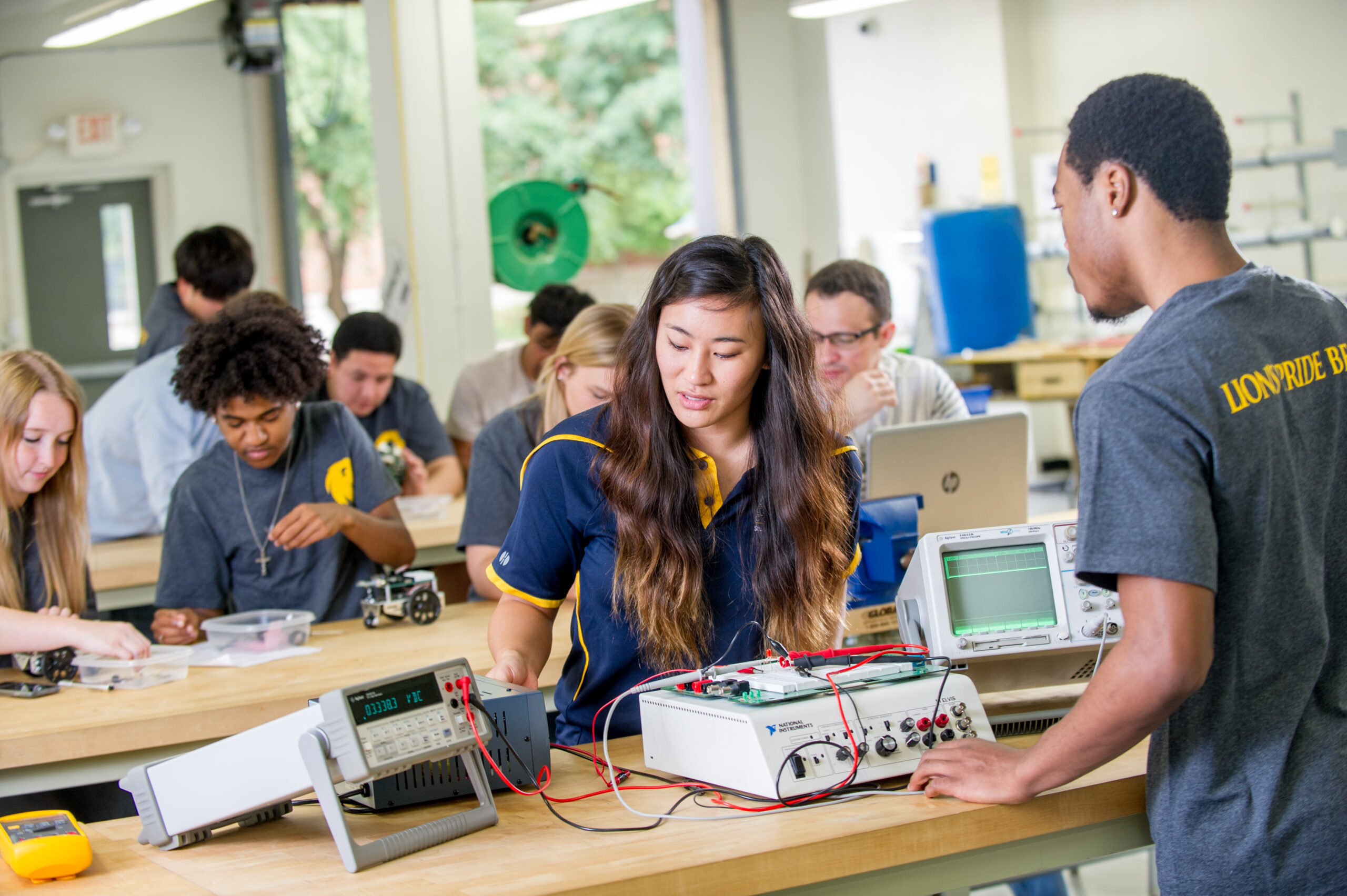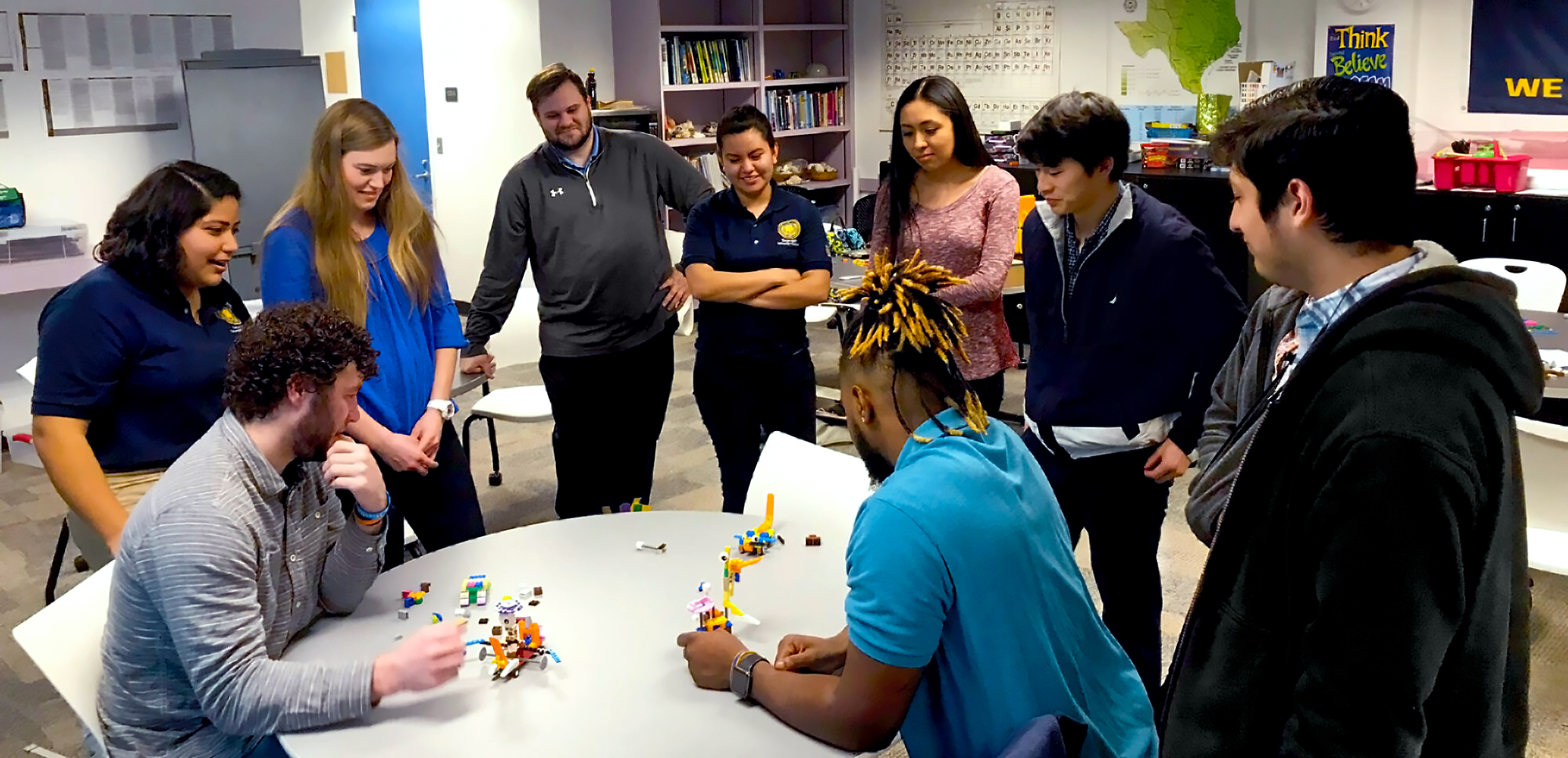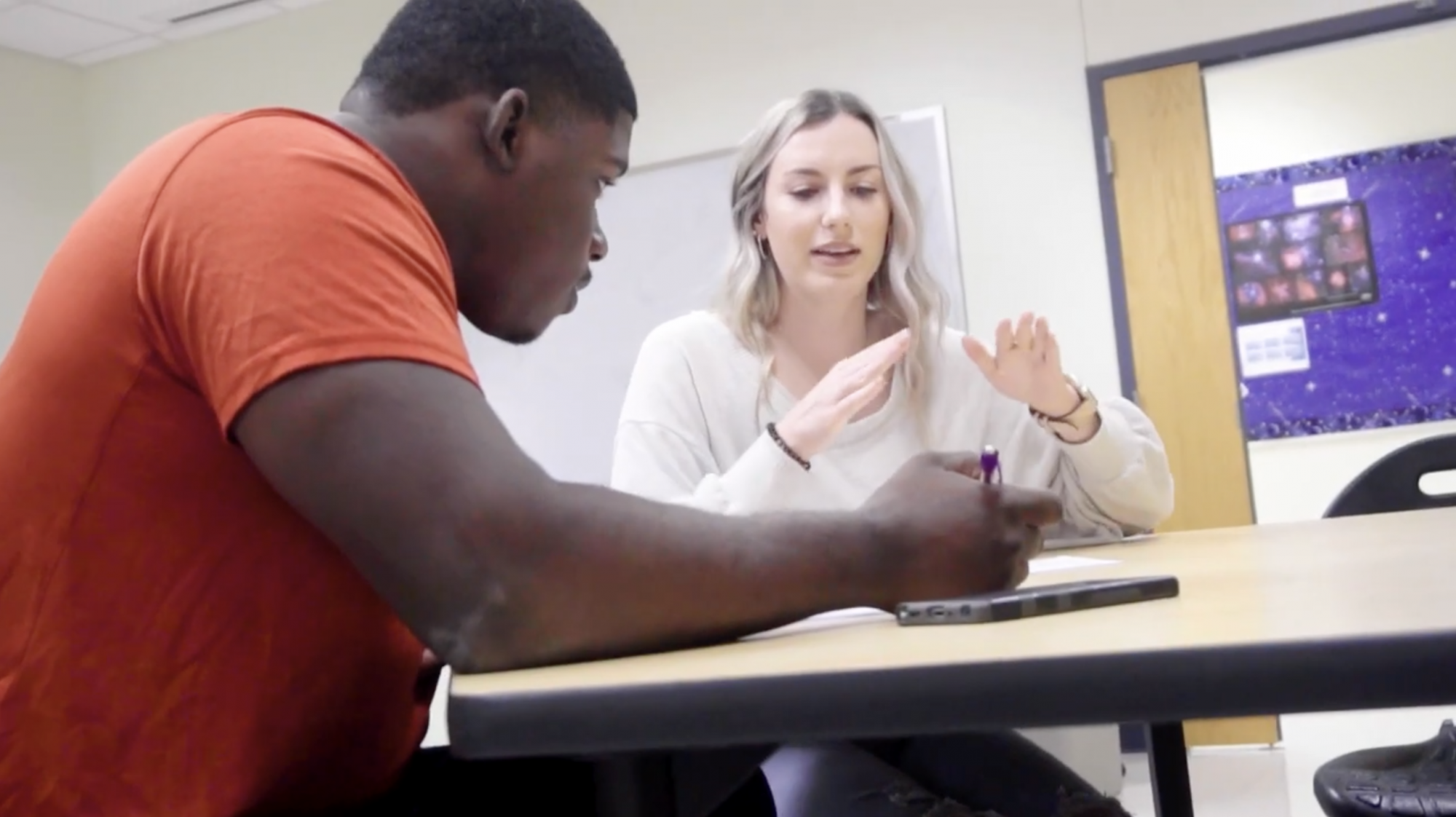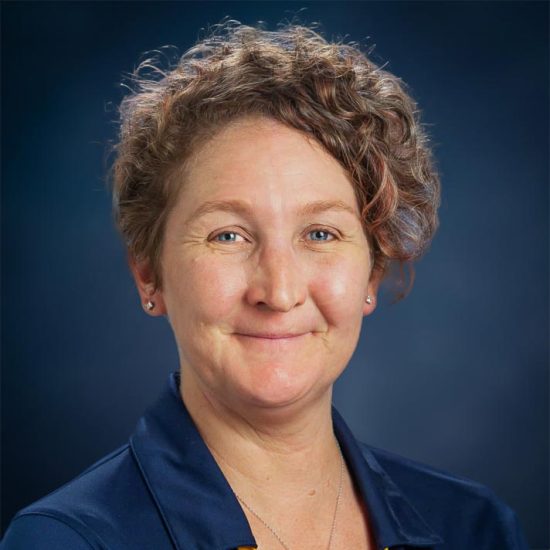
LeoTeach STEM
Lead the Next Generation of Innovation
Bridge the gap between classroom learning and real-world application. STEM educators inspire the next generation of innovators and problem solvers, driving progress in fields such as technology, medicine, engineering, and environmental science.
LeoTeach STEM at East Texas A&M is a collaborative effort between the College of Education and Human Services and the College of Science and Engineering to recruit, educate and support best practices for future STEM teachers.
Through our LeoTeach STEM program, you will learn best practices to become an effective STEM educator and researcher who can inspire and nurture the next generation of innovators.
OUR GOAL
Our goal is to recruit, educate and retain highly qualified STEM teachers who know and use best practices with their students.

Explore Our Curriculum
A course designed to provide the student with information about the application of psychological theory to the learning processes and development of children and adolescents. Principles and procedures of measurement and evaluation are also included. The primary objective is to facilitate a clear understanding of the complex, dynamic processes of learning and development. This course is required as part of the teacher preparation program.
This course introduces the professional body of knowledge necessary for effective STEM teaching through the LeoTeach Program. Thirty hours of classroom observation are required. During three math & science days in upper elementary grades in a public school, the preservice teachers will present lessons that they have collaboratively planned with their instructor, colleagues and mentors. Preparation will include classroom management, curriculum, lesson design, teaching models, learning in diverse environments and modifying lessons for learners with dyslexia. Preservice teachers will move from a what to know stance to a what questions to ask perspective. They will earn a Promethean Tutorial Certificate, the first of three, documenting their instructional technology competence.
This second course in the LeoTeach sequence includes middle school field experiences (i.e., observing master teachers and teaching collaboratively designed lessons to diverse learners). The preservice teachers will develop competence with questioning strategies, two teaching models (direct instruction and Inquiry learning) and use formative assessment data including student artifacts to revise initial lesson plans and further differentiate instruction. They will continue their progress toward digital fluency while earning a Prezi Tutorial Certificate indicating their instructional technology competence. Their lesson plans will include modifications for learners with attention deficits.
This third course in the LeoTeach sequence includes high school field experiences. The preservice teachers will develop competence with the problems based learning model through designing and carrying out an exploratory investigation of a designated topic such as student engagement in learning. Experiences with research design, implementation and data analysis will be the foundation for a teacher inquiry project carried out during SED 400. Reports of what they learned from the investigations will include suggested modifications for students with behavior deficits as well as plans for a series of problem based learning lessons for a high school class. They will earn an iPad Tutorial Certificate indicating their instructional technology competence.
The preservice teacher will explore the science of teaching reading and the integration of best practices for supporting reading and writing instruction in content areas. Students will examine strategies for various disciplines and middle/secondary levels. Attention will be given to how teachers support students in reading textbooks and other learning materials. The course will include phonics, phonemic awareness, reading comprehension, vocabulary development, fluency, writing processes and assessments.
Three Prerequisites:
- Minimum overall GPA of 2.75; must have met TSI; and THEA 250 Reading score or
- ACT 23 Composite and 23 English or
- SAT 1070 Combined and 550 Critical Reading or Verbal.
An experiential component in which future public school teachers design and implement culturally diverse curriculum and model the use of a variety of classroom management strategies. The resident teachers will use cutting-edge technologies for both creating curricula to maximize student engagement. Special attention will center on the synergistic nature of effective management and immersive curriculum. Prospective teachers will achieve knowledge and skill by observing and teaching as an intern in secondary public school teachers in classroom situations.
Prerequisites:
- SED 300 or
- SED 330
- PSY 300
An experiential component in which future public school teachers design and implement curriculum and model the use of a variety of classroom assessment techniques. The resident teachers will use cutting-edge technologies for both creating and assessing lessons. Special attention will center on the alignment of curriculum, instruction and testing. Prospective teachers will achieve knowledge and skill by observing and assisting middle/secondary public school teachers in classroom situations.
Supervised resident teaching experiences in the secondary school classroom. Regular seminar sessions will focus on the situations, questions and concerns that arise directly from the resident teachers' experiences in secondary public school classrooms.
Prerequisites:
- SED 300 or
- SED 330 or
- PSY 300.
Resident teachers perform all aspects of student teaching in a public school setting. Working closely with a public school mentor teacher and under the supervision of a university liaison, the resident teachers learn the process and concepts of teaching in the real-world setting.
Meet our Faculty
Contact Us
- Department of Curriculum and Instruction
- [email protected]
- P.O. Box 3011
- Commerce, TX 75429-3011



 Welcome
Welcome

